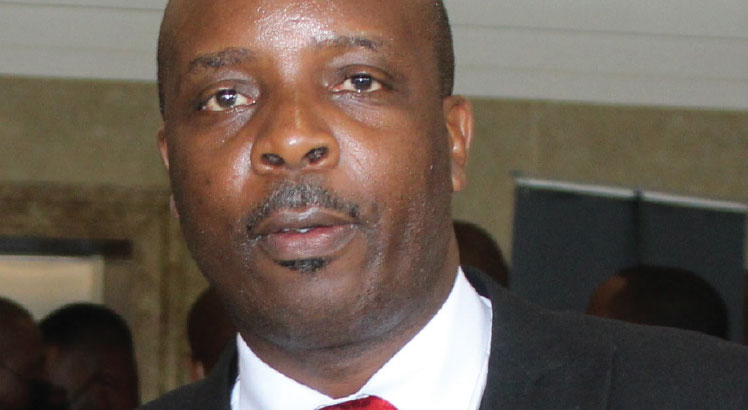The Centre for Human Rights Education, Advice and Assistance (Chreaa) is petitioning hard for the government to swiftly table the Correctional Service Bill for debate in Parliament. The campaigners argue that the outdated prison law currently in use makes the prison situation in Malawi dire. Our Staff Reporter PRECIOUS KUMBANI engaged Chreaa executive director Victor Chagunyuka Mhango to unpack the proposed law.
Mhango: The current law was passed in 1956, it predates the current constitutional dispensation
What are your major concerns about the current prison law?
The current law was passed in 1956 by the British colonial masters. It predates the current constitutional dispensation which recognises human rights for all people, including people in detention. The colonial Prisons Act was adopted with the understanding that prisons were institutions of punishment that were to be used to suppress and silence the indigenous Malawian population. It is worrying that even nearly 60 years after the fall of colonial rule and adopting a Constitution providing for human rights for all, Malawi still uses an outdated legal framework whose application violates a plethora of rights, including the right to health, the right to dignity as well as freedom from torture, inhuman and degrading punishment.
What gaps will the proposed law fill if passed by Parliament?
At the core of the problems affecting prisons in Malawi is congestion. This affects the availability of food, access to healthcare and generally the living conditions in prison. Currently, the Prisons Act only provides for presidential pardon which benefits in decongestion. The current law is unclear on the criteria used to elect candidates for pardon. The Bill fills in this gap and also brings in other means of easing the prison conditions like establishing open house prisons as well as the parole system which will assist in decongesting our prisons. Most importantly the Bill rests a duty to the chief commissioner to take reasonable steps at all times to make sure that the holding capacity of prisons is not exceeded, this duty does not exist in the current Act.
The Correctional Service Bill was drafted in the early 2000s. What is delaying its presentation to the lawmakers in Parliament?
Plans to amend the Prisons Act have been in the pipeline for a long time, with the first draft Bill done in 2003. The purpose of this Bill was to bring the prison regulatory framework in line with the Constitution and international human rights norms. It was contended that the Bill did not take into consideration the socio-economic reality of Malawi at the time. A decade later, it was redrafted in 2013 by the Law Commission to bring it in line with Malawi’s socioeconomic reality. One would say the main issue dragging the process of change now is lack of political will to adopt the Bill. However, we keep engaging with stakeholders to boost understanding of what the Bill holds, which will eventually assist in the deliberations process to adopt the Bill as law.
What are some of the key highlights of the sluggish Bill?
The Bill provides for the possibility of people being released from prison before the completion of their sentence through the parole system. On the temporary licence, it establishes open prisons; which will see prisoners completing their sentences while not locked up in prison cells. In summary the Correctional Services Bill is in line with both national and international human rights standards and will set a good framework for protecting the rights of prisoners while going through the correctional service.
What are the next steps in your advocacy campaign to ensure that the Bill is passed into law?
Chreaa will continually engage with stakeholders like the Prisons Inspectorate which is a constitutionally mandated body to assist in documenting the plight of prisoners in Malawi. Understanding that the Parliament is the key stakeholder in the country’s law reform process, Chreaa plans to engage various committees of the Parliament in dialogue and will also facilitate their visits to prisons so that there must be a hands-on appreciation of the challenges being faced.
From my years of work in the criminal justice system, I have seen a diverse range of people go to prison. These are people who could hardly imagine themselves to be in prison at a certain point in time; the rich, the poor, either guilty or innocent. Some go in for being merely suspected of crime. We must understand that the criminal justice system has the capability of taking in any person. We have seen legislators and even government ministers being incarcerated. When advocating for an improved prison administration system, we must remember we all have the potential to be prisoners. That alone should drive us to do better.
The post Correctional Service Law in limbo appeared first on The Nation Online.
 Moni Malawi
Moni Malawi 

